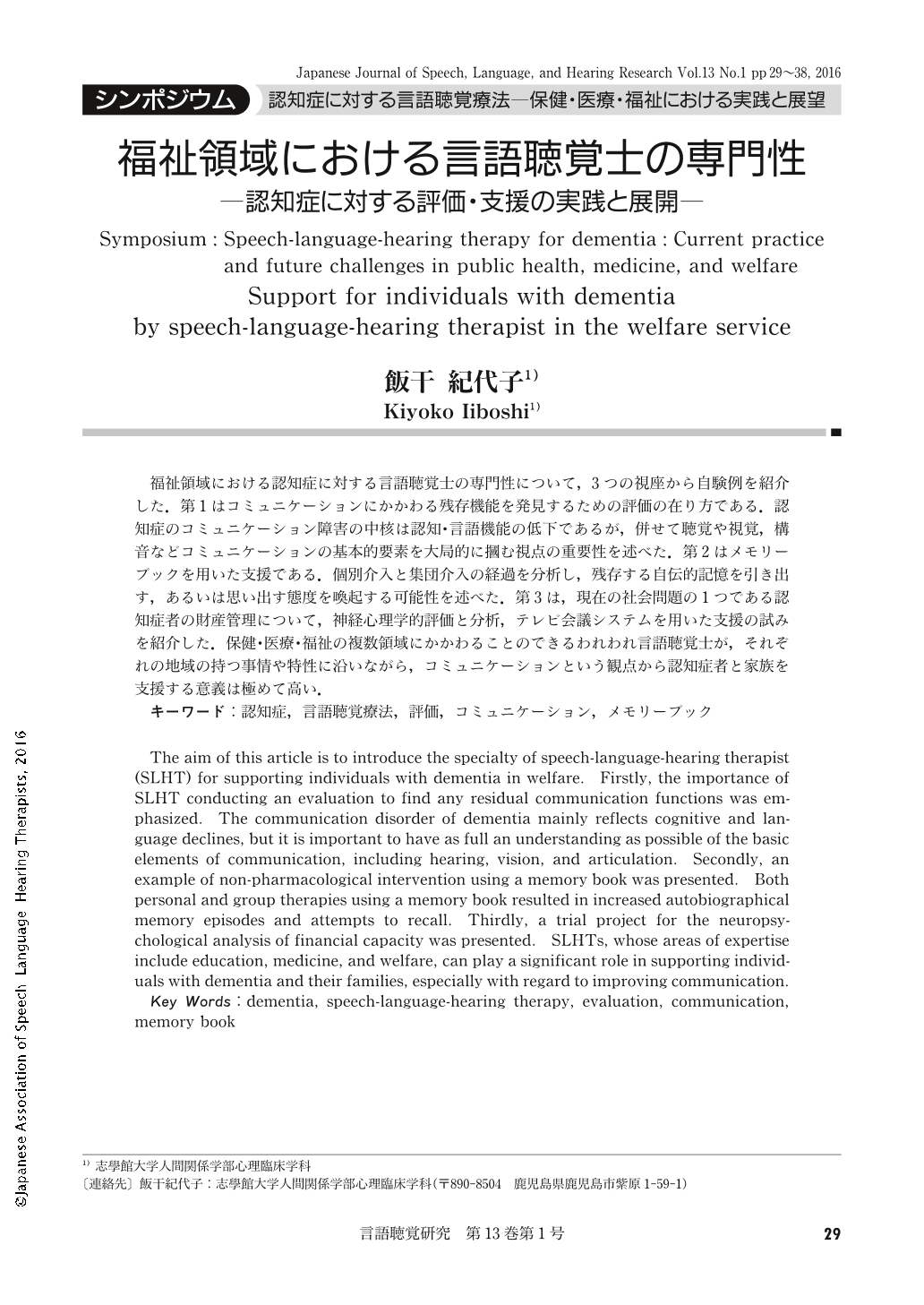Japanese
English
- 有料閲覧
- Abstract 文献概要
- 1ページ目 Look Inside
- 参考文献 Reference
福祉領域における認知症に対する言語聴覚士の専門性について,3つの視座から自験例を紹介した.第1はコミュニケーションにかかわる残存機能を発見するための評価の在り方である.認知症のコミュニケーション障害の中核は認知・言語機能の低下であるが,併せて聴覚や視覚,構音などコミュニケーションの基本的要素を大局的に摑む視点の重要性を述べた.第2はメモリーブックを用いた支援である.個別介入と集団介入の経過を分析し,残存する自伝的記憶を引き出す,あるいは思い出す態度を喚起する可能性を述べた.第3は,現在の社会問題の1つである認知症者の財産管理について,神経心理学的評価と分析,テレビ会議システムを用いた支援の試みを紹介した.保健・医療・福祉の複数領域にかかわることのできるわれわれ言語聴覚士が,それぞれの地域の持つ事情や特性に沿いながら,コミュニケーションという観点から認知症者と家族を支援する意義は極めて高い.
The aim of this article is to introduce the specialty of speech-language-hearing therapist (SLHT) for supporting individuals with dementia in welfare. Firstly, the importance of SLHT conducting an evaluation to find any residual communication functions was emphasized. The communication disorder of dementia mainly reflects cognitive and language declines, but it is important to have as full an understanding as possible of the basic elements of communication, including hearing, vision, and articulation. Secondly, an example of non-pharmacological intervention using a memory book was presented. Both personal and group therapies using a memory book resulted in increased autobiographical memory episodes and attempts to recall. Thirdly, a trial project for the neuropsychological analysis of financial capacity was presented. SLHTs, whose areas of expertise include education, medicine, and welfare, can play a significant role in supporting individuals with dementia and their families, especially with regard to improving communication.

Copyright © 2016, Japanese Association of Speech-Language-Hearing Therapists. All rights reserved.


